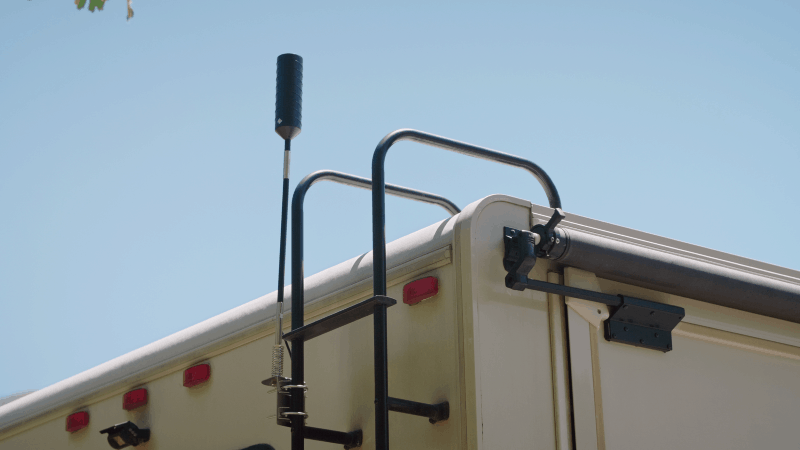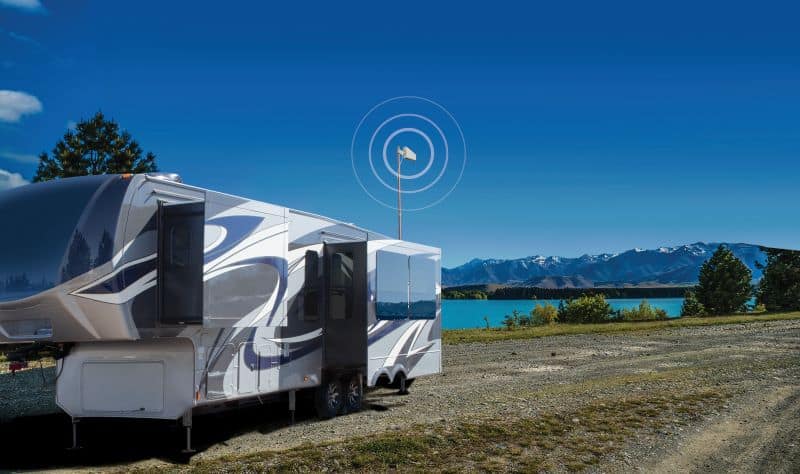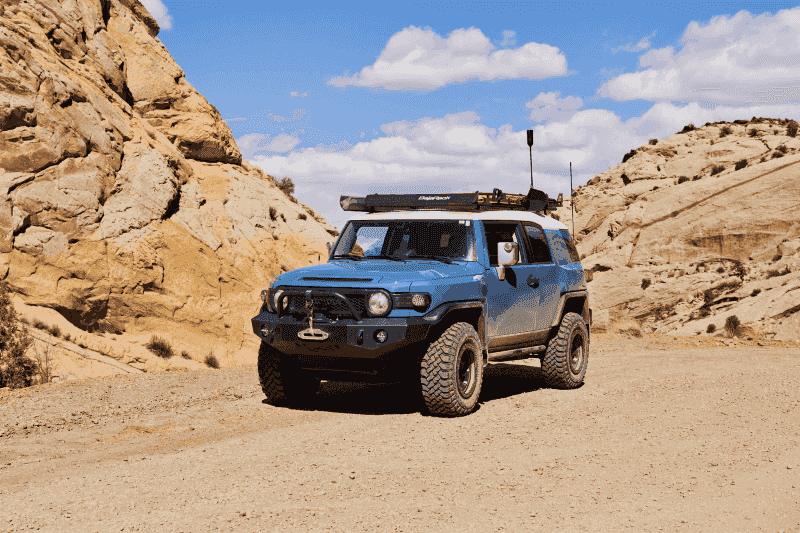How to Boost the Cell Phone Signal in Your RV
Posted on 8/1/2022 by Web Admin
Traveling in an RV is like having all the comforts of home but in a portable form. And although traveling in an RV can be a blast, one thing many owners grapple with is cell phone reception. An RV often has poor cell phone reception, especially inside.
A cell phone signal booster from weBoost, particularly one that’s designed to be installed in an RV, may be a great solution to poor signal strength. Check out the tips below about improving the cell signal inside an RV.
Causes of Poor Cell Signal Inside an RV
In general, cell phone signal strength is directly related to two things: your distance from a cell phone tower and the type of building you’re standing in while trying to pick up a cell phone signal.
An RV has two disadvantages when it comes to both of those scenarios. When you’re traveling in an RV, you are likely to be in a remote or rural area. Places like these don’t usually have a cell phone tower nearby.
To make matters worse, depending on where you are, there may be several obstructions in the way of the cell tower, such as mountains, forests, hills and other buildings. Natural landforms and other structures can make it more difficult for a cell phone signal to reach you.
But even if you’re camping out in a more populated place where the signal outside isn’t so bad, most RVs are made of some combination of metal (typically aluminum) and fiberglass, and both of these materials disrupt the strength of cell phone signals.
Tips for Better Cell Phone Reception in an RV
1. Try to Be Stationary If You Can
When you’re deciding the best way to improve your cell phone signal in an RV, one thing to consider is whether you plan to be stationary, travel most of the time or do a little of each. Knowing this can help you better select a cell phone booster that will do the job you need it to do.
If you have the type of RV that is functional only as a shelter, like a fifth-wheel camper for example, you’re in luck — it’ll be easier for you to get a stronger cell phone signal when your RV is stationary because your phone doesn’t have to constantly adjust to your changing location. It’s easier for you to pick up and hold a strong signal when the vehicle isn’t moving.
2. Find Higher Ground
If you’re on the road trying to find a spot to camp and you’re factoring in cell phone signal strength as a consideration, try to find a safe high point, such as at the top of a hill. Increasing your elevation decreases the chances that the cell phone signal in your area will hit an obstruction — think buildings, trees, hills or mountains.
3. Go Outside
This was discussed above, but it bears repeating: cell phone signals tend to be stronger outdoors because building materials can’t interfere with them. You may have experienced this yourself at work or while at a restaurant. You might receive a call inside but then have to step outside to get the other person to hear you more clearly.
The same is often true of RVs, which are made of materials that can block phone signals from getting inside. Stepping outside of your RV’s confines can help improve your signal strength.
4. Use a Cell Phone Signal Booster Designed for RVs
A cell phone signal booster made specifically for RVs may be your best long-term solution. These devices mount directly onto your camper or RV and boost the existing cell phone signal. Installing one helps to address two of the major problems with weak cell phone signal in an RV: the distance from the nearest cell phone tower and the signal strength lost due to signal blockers.
How a Cell Phone Signal Booster Works for an RV
All cell phone signal booster systems work with three primary components: an external antenna, an amplifier and a series of indoor antennas. Depending on the size of your system, you may have one, two or more internal antennas.
RV cell phone boosters pull in a weak outdoor signal, boost it and rebroadcast it to a designated area, such as the interior of your RV. It’s important to note that a cell phone signal booster, whether it’s for a building or a vehicle, can’t create a signal — there needs to be an existing signal, however weak, for it to work.
The external antenna (mounted to your RV or on a pole) picks up the existing cell phone signal and sends it to the amplifier. The amplifier increases the signal strength and transmits it to the internal antennas, which then broadcast the strengthened signal to your smartphone.
Boosting Cell Phone Signal for an RV While Parked
As mentioned before, if you’re planning on staying stationary, it’s much easier to improve your cell phone signal because your smartphone doesn’t constantly have to adjust your location. Neither does the external antenna.
When choosing a cell phone booster for an RV that’s parked, select a cell phone booster equipped with a directional antenna, such as the weBoost Destination RV.
The directional antenna targets the nearest cell tower, even if it’s far away. So if you’re planning to park in a relatively rural area, this may be the best choice for you. Destination RV boasts 65 dB max gain, which means it provides the best possible coverage, and it features a 24-foot telescoping external antenna pole, ideal for capturing cell phone signals high above nearby obstructions.
Boosting Cell Phone Signal for an RV While Moving
If you’re planning to be on the go or doing a combination of parked and road use, you have a couple of choices when it comes to cell phone signal boosters from weBoost: the Drive Reach RV and Drive X RV. Drive Reach RV is the more powerful of the two.
Both of these RV cell phone signal boosters have omnidirectional antennas, which means they accept cell phone signals from all directions, and the booster doesn’t have to be pointed in the direction of a tower.
RV Cell Phone Signal Booster Features
No matter what type of RV cell phone signal booster you select, all of weBoost’s choices include some key features that are important, no matter which model you select.
- 5G Ready: All our RV cell phone signal boosters and many of the ones designed for buildings are 5G compatible, so they’re ready to boost cell phone signals well into the future.
- Carrier Compatibility: Whether your carrier is AT&T, Verizon, T-Mobile, US Cellular, or someone else, your weBoost cell phone booster will amplify your signal.
- Backwards Compatible: If you live in an area where 5G isn’t quite rolled out yet, weBoost’s cell phone signal boosters for RVs work just as well with 3G and 4G signals.
If you’re ready for RV adventure and you’re interested in boosting your cell phone signal on the way to your destination (and after you get there!), check out weBoost’s line of RV cell phone signal boosters.







